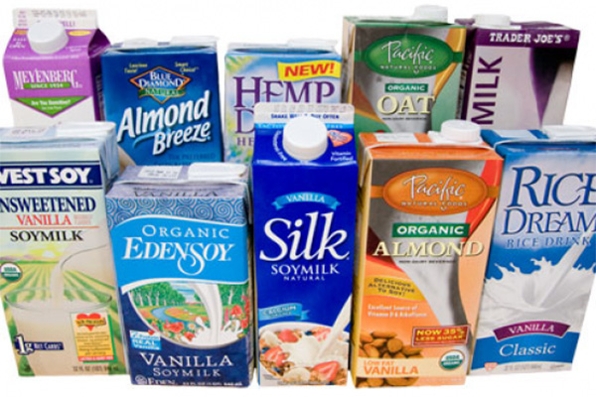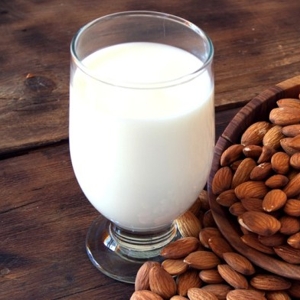I know that sounds counter-intuitive, but a new British study reveals that it’s true. Drinking Soy, Almond, Coconut, Oat, Rice, Hazelnut, Hemp or other substitutes for Cow’s Milk may leave you short of Iodine, an important element in your diet which is essential to maintaining thyroid health.
 A wide range of Milk substitutes are available, but none is fortified with Iodine…
A wide range of Milk substitutes are available, but none is fortified with Iodine…
People drink Milk substitutes for a number of reasons. Some are Lactose intolerant, some don’t like the taste and some are morally opposed to keeping cows pregnant so they’ll continue to produce milk. But a University of Surrey study reported recently in the British Journal of Nutrition warns that drinking only Milk substitutes deprives children and adults of Iodine, which can lead to a wide range of consequences associated with Thyroid function.
Iodine is particularly important during pregnancy as it is essential for normal fetal brain development. Previous research in this area by the University of Surrey has shown that low iodine in pregnant mothers is linked to lower IQ and reading scores in their children (up to 9 years of age).
Study author Margaret Rayman, Professor of Nutritional Medicine at the University of Surrey, says: “Many people are unaware of the need for this vital dietary mineral and it is important that people who consume milk-alternative drinks realise that they will not be replacing the iodine from cows’ milk which is the main UK source of iodine. This is particularly important for pregnant women and those planning a pregnancy. A glass of a milk-alternative drink would only provide around 2 mcg of iodine which is a very small proportion of the adult recommended iodine intake of 150 mcg/day. In pregnancy, that recommendation goes up to 200 mcg/day.”
What can you do?
First of all, if you use Milk substitutes, be aware that you are falling short on Iodine.
Dr Sarah Bath, Lecturer in Public Health Nutrition at the University of Surrey and registered dietitian, says: “Worryingly, most milk-alternative drinks are not fortified with iodine and their iodine content is very low. If avoiding milk and dairy products, consumers need to ensure that they have iodine from other dietary sources, where possible. More information on good Iodine sources such as White Fish can be found in the British Dietetic Association Iodine Food Fact Sheet. If considering taking an iodine supplement, they should avoid Kelp which can provide excessive amounts of iodine.”
Now you know…
~ Maggie J.

